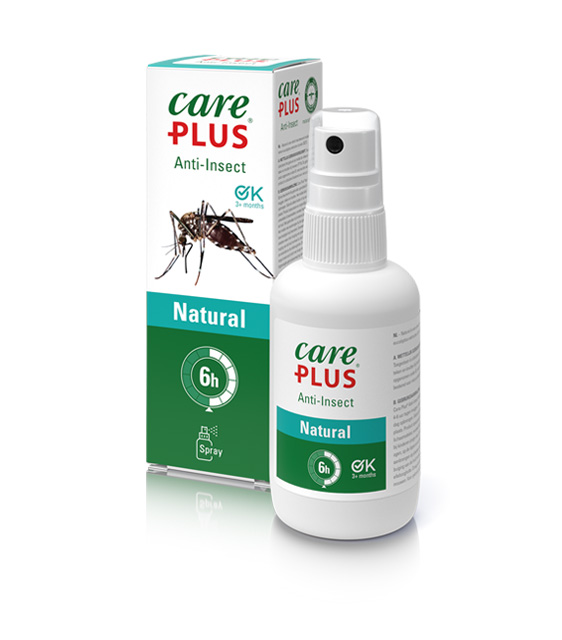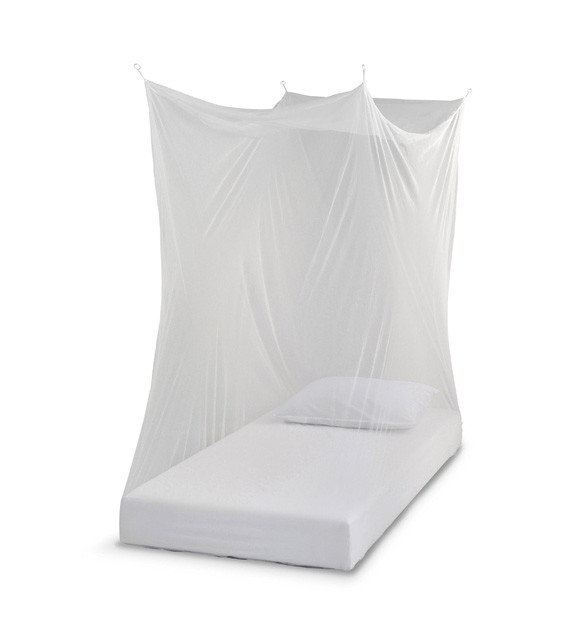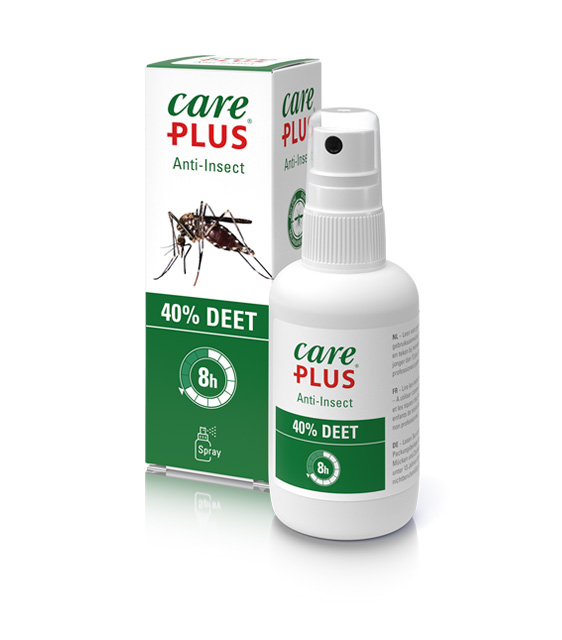- What exactly is the zika virus?
- Where does zika occur?
- What does this mean for travellers?
- How can I protect myself from the zika virus?
- Why is it a pandemic now, when zika has been around for over 60 years?
What exactly is the zika virus ?
Zika is a virus. Zika is related to dengue and chikungunya. One in four people who contract zika will experience symptoms. Symptoms occur within 2-7 days after the bite/infection and last a couple of days. The best-known symptoms are light fever, headache, skin rash, joint pain and conjunctivitis. Zika can lead to Guillain-Barré syndrome or microcephaly in babies. There is no vaccine available. The zika virus is transmitted by mosquitoes of the Aedes genus. These mosquitoes are found in urban areas and unlike the malaria mosquitoes, they are mainly active during the day. Pregnant women run the same risk of contracting the disease as the rest of the population.

Anti-Insect Natural
Care Plus® Anti-Insect Natural is made with natural lemon eucalyptus extracts. Its effectivity has been proven in scientific field studies.
Care Plus® Natural Spray, 60 ml. 6-hour natural protection against mosquitoes.
Anti- Insect with DEET
Care Plus® Anti-Insect DEET 40% is made with natural lemon eucalyptus. This is the only natural ingredient suitable to use as an insect repellent. Its effectivity has been proven in scientific field studies.
Care Plus® Anti-Insect DEET 40%, 80 ml. 8-hour protection against mosquitoes.

Mosquito nets
Care Plus® Anti-Insect Deet gel 30% is the strongest insect repellent for the skin. Suitable for tropical destinations (risk of malaria, dengue, yellow fever) and Europe and city trips.
Care Plus® Anti-Insect DEET 30%, 100 ml. 8-hour protection against mosquitoes.
Where does zika occur?
Zika occurs in (source WHO, 29 January 2016) Barbados, Bolivia, Brazil, Colombia, the Dominican Republic, Ecuador, El Salvador, French Guyana, Guadeloupe, Guatemala, Guyana, Haiti, Honduras, Martinique, Mexico, Nicaragua, Panama, Paraguay, Puerto Rico, Sint Maarten, Suriname, the American Virgin Islands, Venezuela. This map shows where zika occurs.
What does it mean for travellers?
We advise travellers to obtain information regarding whether their intended destination is a zika risk area. Check this before finalising your travel plans. Make a well-informed decision to continue your travel plans. Especially pregnant women should consider not going or postponing their trip. Are you going to a zika risk area? Take the right precautions needed to stay healthy!
How can I protect myself from zika?
Simple. No mosquito bites, no zika. Mosquitoes that bite during the day can transmit the zika virus, Our advice is:
- Drain stagnant water. Mosquitoes lay their eggs in it. You do not want these eggs to hatch, this will only increase the number of mosquitoes.
- Wear insect-repellent clothing (impregnated with permethrin) and socks.
- Apply high-quality insect repellents with DEET, picaridin or citriodiol (lemon eucalyptus) to exposed skin.
- Sleep under an impregnated mosquito net.
Why is it a pandemic now, while zika has been around for 60 years?
The zika virus is the next in line gaining ground, after the West Nile virus in the ’90s and dengue and chikungunya in more recent years. This mosquito species (Aedes) is an important transmitter of these diseases. Travellers play a role in expanding the geographical area, as are secondhand (car) tyres and lucky bamboo. Zika will certainly not be the last infectious disease we see encroach and spread. Changing our behaviour is necessary in order to control the mosquito population, or even better; to reduce it. And better personal protection from mosquitoes must be promoted.
Panicking won’t help, common sense will. Contribute to the latter.

